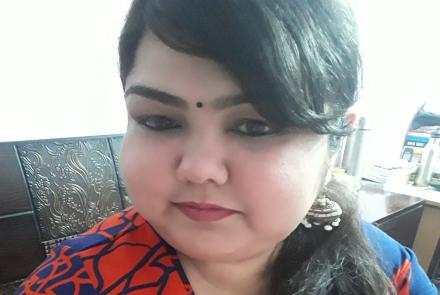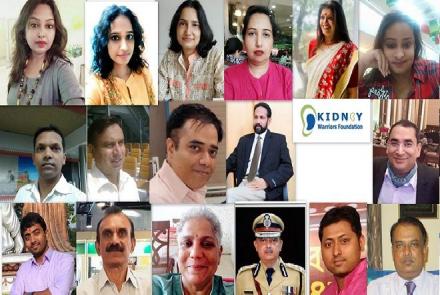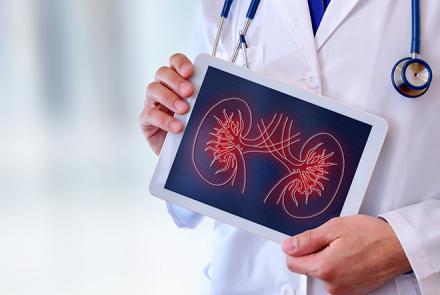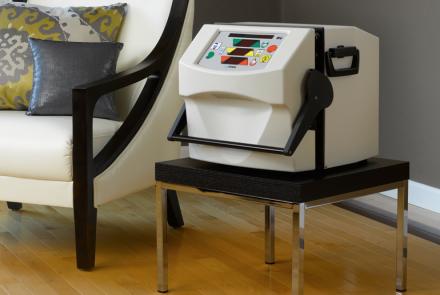
An interesting and informative Webinar in collaboration with Kidney Warriors Foundation on ‘Living Better with Kidney Disease’ covered an entire gamut of issues ranging from best dietary choices to overcoming anxiety during dialysis. We bring you excerpts in an easy Q&A format gathered from responses of panelists.
What are the main diet restrictions for a patient with kidney disease?
Diet accounts for 50 per cent of any kidney failure patient, whether it is a dialysis or kidney transplant patient. It is very important that diet prescribed is adhered. That does not mean a kidney patient should always live in state of denial and deprivation. This is a misconception. As long as indulgences are managed intelligently in consultation with your dietician and doctor, who can find ways to incorporate your likes and dislikes. If you do not stray far from the prescribed diet regimen, everything is possible.
Is exercise recommended for those on dialysis?
Yes. The benefits are too many to be missed. Exercise helps build a more positive state of mind. It makes you feel normal and healthy. You feel fresh and energetic. Some form of exercise should be included in the daily routine. Every single individual can do some exercise. It may be different. Some can do a 5 minute walk or some can do a marathon. There are dialysis patients who have even participated in the Ironman Triathlon, considered as one of the most difficult sporting events in the world. So it varies. You have to see what works for you.
What about work possibilities?
Being a full time professional can be a challenge for those on dialysis. But one can overcome them. The need is to identify employers who would allow you to fit in your dialysis schedule within working hours, provided work productivity is not compromised.
What is a typical dialysis regimen that most people have?
Around the world, especially in developed countries, the standard is thrice a week, four hours per session. However, in India, due to various reasons of affordability and accessibilityand son on, most people get dialysis twice a week, which is not optimal. Those on peritoneal dialysis need it 3 times a day for about half an hour, unless people are using the automated cycler machine at night that takes about 8 to 9 hours performing multiple exchanges at night.
Some people get anxious on dialysis days - why does that happen?
Anxiety could be due to a number of reasons.
- One possible reason why a number of people face anxiety on dialysis days is because of the needles. The needles can be frightening, many people it difficult to deal with it. The dialysis process itself can be quite taxing. You feel very drained at the end of dialysis. It may not be evident, but at the subconscious level you may be scared. One solution is to discuss with your nephrologist and switch to buttonhole needles. It reduces the pain by 95 per cent.
- The other thing you could do is to do your own cannulation. It may sound very difficult at first, but it is a matter of getting used to. (Cannulation is a technique in which a cannula or a thin tube is placed inside a vein to provide venous access.) It may be a little daunting, you get videos on YouTube which are available of patients cannulating themselves. These are two possible things you can do for reducing anxiety.
- Build a circle of positivity around you with a happy video, message and thoughts or peopleto ease yourself on dialysis days.
How does one deal with transplant rejection?
Transplant rejection is not the end of the road. There is always possibility of another transplant, and another transplant. There are people who have got 2 to 3 transplants. If there are no clinical contraindication, you could possibly register for another kidney transplant. A transplant offers the best quality of life. And if not possible, dialysis is not as bad as made out to be. Dialysis need not restrict you from leading a normal life.
How do you travel while on dialysis?
If you are travelling outside your city or overseas, you should look up for dialysis centres online. You should check out their reviews and pictures.It is best if you can talk to someone there or who has got dialysis there. It is important to look for good quality dialysis centres.
How to deal with uremic itching while on dialysis?
It is called uremic pruritus. It is a common problem for patients with chronic renal failure or end stage renal disease. It affects about one-third of patients on dialysis and is more common with haemodialysis than continuous ambulatory peritoneal dialysis (CAPD).The most common cause is high phosphate in the blood. The way it can be resolved it make sure you take your phosphate binders as per your doctor’s prescription. Another way of mitigating high phosphate level is to opt for longer duration dialysis, or more frequent dialysis or hemodiafiltration (HDF).And the second possible cause could be due to a neuro issue. There are very simple drugs that can taken. Talk to your doctor about it.
Is hemodiafiltration (HDF) better than hemodialysis (HD)?
According to patients’ response, HDF is a lot better. The recovery time is quite less. The way you walk in is the way you walk out. You get high quality dialysis. The clearance and ultrafiltration are great. The water that is going into your body is of high quality as well. The cleaning of the blood is a lot better. They usually use the high-flux FX80 dialyzers. The clearance of toxins is in high flux dialyzers than in low flux (17,18).
How does a patient keep himself/herself well informed and abreast of new developments?
- Do adequate research on your condition. I wanted to be more in the knowledge of what was happening to me.
- Subscribe to newsletters providing information on kidney issues
- Check online platforms. Choose reputed, legitimate websites.
- Be in constant touch with your doctors
- Join a support group
The panelists were:
- Kamal D. Shah, who has atypical Hemolytic Uremic Syndrome (HUS), has been living with the disease for 23 years.
- Shrruti Mukundan, who has Primary Hyperoxaluria Type 2, has ben living with the disease for 22 years.
- Anjali Uthup Kurian is a caregiver to her brother, Sunny, and supports patient families.
















